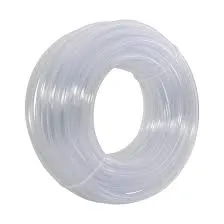दिसम्बर . 10, 2024 11:20 Back to list
pp panel
Understanding PP Panels A Versatile Building Material
In the construction and design industries, materials play a crucial role in determining the efficiency, aesthetics, and durability of structures. One such innovative material that has gained popularity is PP panels, short for polypropylene panels. PP panels are versatile building supplies made from a thermoplastic polymer, renowned for their strength, lightweight, and resistance to various environmental factors. This article explores the properties, applications, and advantages of PP panels in modern construction.
What Are PP Panels?
PP panels are sheets crafted from polypropylene, a type of plastic that's both flexible and incredibly durable. Their manufacturing process typically involves extrusion, where melted polypropylene is shaped into sheets of varying thicknesses and sizes. These panels can be easily transformed to meet specific design needs, making them a favorite among architects and builders alike.
Key Properties of PP Panels
One of the standout features of PP panels is their impressive chemical resistance. They can withstand exposure to acids, alkalis, and solvents, making them ideal for use in environments such as laboratories, chemical plants, and food processing facilities. Additionally, PP panels are water-resistant, which prevents the growth of mold and bacteria, contributing to healthier indoor environments.
Another important property of PP panels is their lightweight nature. This feature facilitates easy handling and installation, ultimately reducing labor costs and construction time. Furthermore, PP panels provide excellent thermal insulation, which can lead to energy savings in heating and cooling systems.
Applications of PP Panels
pp panel

The utility of PP panels extends across various sectors. In the construction industry, they are utilized for wall cladding, partitions, and ceilings. Their ability to be embossed or printed allows for customized designs that can enhance the aesthetic appeal of any space.
In the automotive industry, PP panels are commonly used for interior parts due to their lightweight characteristics and ability to reduce vehicle weight, contributing to better fuel efficiency. Additionally, they are widely used in furniture manufacturing, providing a durable and aesthetically pleasing finish that can withstand everyday wear and tear.
In the agricultural sector, PP panels are used in greenhouse construction. Their durability, combined with excellent light transmission properties, helps in creating optimal growing conditions for crops.
Advantages of Using PP Panels
One of the most significant advantages of PP panels is their sustainability. Polypropylene is recyclable, and many manufacturers offer eco-friendly options, enabling businesses to reduce their environmental impact. Additionally, with the increasing emphasis on green building practices, the use of recyclable materials in construction is becoming more prevalent.
Moreover, the cost-effectiveness of PP panels cannot be overlooked. Their longevity and low maintenance requirements result in substantial savings over time. Unlike traditional materials, which may require regular upkeep or replacement, PP panels are designed to last, making them a wise investment.
Conclusion
PP panels are revolutionizing the way we approach building materials. Their unique combination of durability, versatility, and sustainability makes them an ideal choice for a wide range of applications, from commercial construction to automotive interiors. As industries continue to seek efficient and eco-friendly solutions, the demand for innovative materials like PP panels is likely to grow. By embracing this advanced material, builders and designers can create structures that are not only functional but also environmentally responsible.
-
Durable PP Rigid Sheet: Lightweight, Chemical Resistant Solutions
NewsAug.21,2025
-
PVC Grey Sheet for Extraction: Chemical Resistant & Durable
NewsAug.19,2025
-
Durable PVC Pipe Fittings for Plumbing & Irrigation Needs
NewsAug.18,2025
-
HDPE Steel Belt Reinforced Spiral Corrugated Pipe | High Strength
NewsAug.17,2025
-
HDPE Pipe Fittings: Durable, Leak-Proof Solutions
NewsAug.16,2025
-
Premium CPVC Sheet: High-Temp & Chemical Resistant Solutions
NewsAug.15,2025

